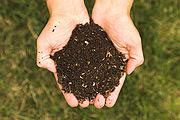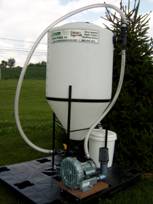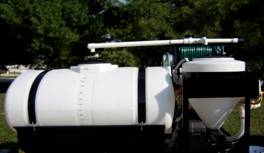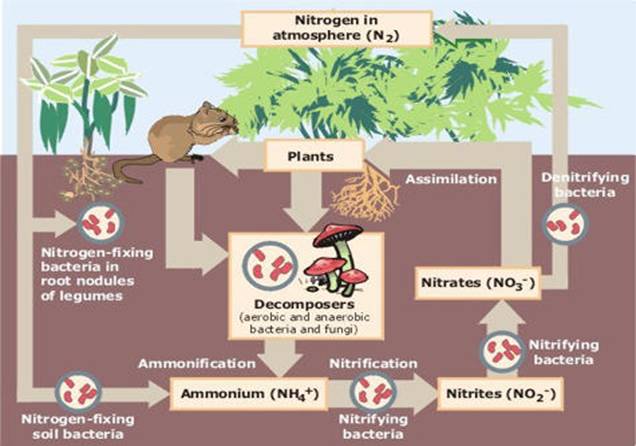Benefits
 The benefits of quality compost are well known, having been the staple of successful gardening for centuries, long before commercial fertilizers were developed. Quality compost is the result of millions of microbes breaking down more complex organic matter into more simple structures. Fundamentally, the “brewing” of compost tea is the process of transferring these microbes from the compost into a liquid. This eliminates the bulk of the compost while enabling greater ease of application, including soil drenches and injections as well as foliar applications, which would be impossible in the compost form. The benefits of quality compost are well known, having been the staple of successful gardening for centuries, long before commercial fertilizers were developed. Quality compost is the result of millions of microbes breaking down more complex organic matter into more simple structures. Fundamentally, the “brewing” of compost tea is the process of transferring these microbes from the compost into a liquid. This eliminates the bulk of the compost while enabling greater ease of application, including soil drenches and injections as well as foliar applications, which would be impossible in the compost form.
This tremendous diversity and quantity of healthy microbes has many benefits:
- Microbes decompose dead matter, like leaves and thatch, converting it into compost;
- Suppresses disease through competition, inhibition and consumption;
- Facilitates nutrient cycling, which in some cases cannot take place without microbes;
- Retains nutrients in the soil, reducing run-off, leaching, and volatilization;
- Helps convert nutrients into plant-available forms;
- Builds soil structure, increases water holding capacity, reduces water usage and,
- Reduces soil compaction, ultimately enabling deeper air, water and root penetration.
|


|
Compost has a multitude of signifcant inputs for the soil. And healthy soil grows healthy
plants, from giant redwoods to golf course greens. Two dominant benefits of quality compost
are organic matter and a tremendous diversity of living organisms, organisms that actually feed
off of the organic matter to break it down into compost. The best compost has the fragrance of
the forest floor, a marvelous crumbly texture, and tens of thousands of industrious microbes,
including beneficial Bacteria, Fungi, Protozoa and Nematodes, all surrounded by soluble
nutrients.
Of the many differences that contrast compost to commercial fertilizer, perhaps the most significant is this; compost largely benefits the soil whereas fertilizers are formulated to primarily benefit the plant. Enhancing soil health is a great way to support plant health.
Without a living, vibrant population of beneficial microbes in the soil, plants struggle to survive,
let alone thrive. Microbes are essential to healthy soils (link to “Soil Health”), which grow healthy plants.
Despite all of the great things about compost, one of its shortcomings is its physical bulk. Its
sheer volume makes it difficult to use in areas like golf course greens, tee boxes, and front
lawns. The labor required to apply compost is also very costly.
During the latter part of the 20th Century, a process was developed to remove the beneficial living organisms from the bulky compost, and Compost Tea was born. The “brewing” of Compost Tea places high quality compost in a water bath and injects lots of air, enough air to dislodge the microbes from the surfaces of the compost and provide oxygen so they can multiply rapidly. When certain food sources are added to the process, multiplication is very rapid, perhaps a hundred fold in a 24-hour period. Now that the microbes are living in water instead of on the compost, application is very easy, although it must be completed quickly before the microbes begin to die. In addition to soil drench applications, getting rid of the compost permits foliar applications (link to Application Pricing).
Because compost tea is filled with living organisms, great care must be taken during application. Dead microbes are not beneficial and, when left in brewing or application
equipment, can actually be toxic to healthy microbes and to plants. Equipment cleaning, or at least a procedure to limit the possibility of creating an unhealthy environment in the application equipment, is critical. See Compost Tea Application Equipment for more information. |
|
 The benefits of quality compost are well known, having been the staple of successful gardening for centuries, long before commercial fertilizers were developed. Quality compost is the result of millions of microbes breaking down more complex organic matter into more simple structures. Fundamentally, the “brewing” of compost tea is the process of transferring these microbes from the compost into a liquid. This eliminates the bulk of the compost while enabling greater ease of application, including soil drenches and injections as well as foliar applications, which would be impossible in the compost form.
The benefits of quality compost are well known, having been the staple of successful gardening for centuries, long before commercial fertilizers were developed. Quality compost is the result of millions of microbes breaking down more complex organic matter into more simple structures. Fundamentally, the “brewing” of compost tea is the process of transferring these microbes from the compost into a liquid. This eliminates the bulk of the compost while enabling greater ease of application, including soil drenches and injections as well as foliar applications, which would be impossible in the compost form.

